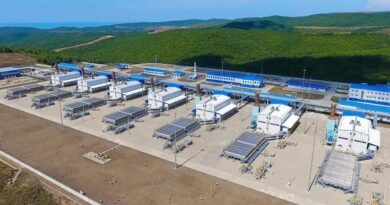Sabotage, Corruption, and Strategic Collapse: Why F-16s Alone Won’t Save Bulgarian Defense
The recent controversy over the landing of Bulgaria’s first F-16 cannot be dismissed as an isolated incident. It follows a prior scandal involving a brief stopover by an American F-35 in Plovdiv, which triggered an unprecedented security operation. The concerns then weren’t just about logistics — both American and Dutch officials made it painfully clear: they didn’t trust Bulgaria to protect advanced Western military technology from Russian intelligence.
That suspicion wasn’t misplaced. It reflects a much deeper, systemic problem.
While Bulgarian political figures like Boyko Borissov and Delyan Peevski are quick to cut high-profile deals with American partners — using public funds to buy political indulgence — they are simultaneously, through deeply entrenched corruption, enabling Russian operatives to gain access to NATO’s most sensitive information.
This is not speculation. It is a structural vulnerability. And it threatens far more than a single airframe.
NATO Modernization? Not Without Trust
This incident exposes a far more serious and strategic issue:
How can Bulgaria, under the grip of the Borissov–Peevski tandem, ever hope to modernize its military and defense industry?
Russian intelligence services have deeply infiltrated Bulgarian institutions, including the military. The country’s counterintelligence service is not only overwhelmed by the scale of this infiltration — it is also neutered by political interference from the top. The GRU, SVR, and FSB operate with near-total impunity. Put bluntly: Bulgaria’s main barrier against espionage is offline.
Under these circumstances, even massive defense spending won’t improve combat readiness or defense capabilities. On the contrary, it may only fuel further corruption and strengthen Russia’s ability to infiltrate Bulgaria’s most sensitive national security infrastructure.
Support Independent Analysis
Help us keep delivering free, unbiased, and in-depth insights by supporting our work. Your donation ensures we stay independent, transparent, and accessible to all. Join us in preserving thoughtful analysis—donate today!
We can import cutting-edge military hardware from our allies, but if those allies no longer trust us to safeguard their technologies, Bulgaria becomes a liability within NATO — a black hole for innovation and a blind spot in allied coordination.
And this is no unpredictable catastrophe. It is not a black swan. It is a gray rhinoceros — a danger that has been plainly visible for years, yet consistently ignored.
The Destruction of Bulgaria’s Private Defense Sector
To make matters worse, the Borissov–Peevski alliance has systematically undermined one of the country’s few remaining success stories: its dynamic, internationally competitive private arms industry.
Why? Because the private sector operates efficiently, independently, and transparently — three things the political elite cannot control or monetize.
Consider the latest scandal: a vertically integrated private company proposed building a military-grade explosives plant that would enable a dramatic increase in shells and ammunitions’ exports to Ukraine. The project will outpace the timeline of the state-backed Rheinmetall project. The proposal is being blocked. Why? Because:
- It does not rely on public funding;
- It could be completed in under two years;
- It would help Bulgaria retain its share of the international ammunition market;
- And it would substantially boost Bulgaria’s capacity to support Ukraine.
But there’s a catch: the factory’s owner refuses to yield to Peevski’s network of control over the military-industrial complex. A familiar pattern is unfolding — echoing the tactics used during the Corporate Commercial Bank (KTB) scandal — in which private assets are targeted for hostile takeover. After consolidating control over Bulgaria’s largest infrastructure and engineering firm, Peevski’s circle now has its sights set on one of the most important private players in the defense sector.
No explosives’ factory means no shells.
No shells means less support for Ukraine.
And that means Russia wins.
This is the Borissov–Peevski vision for public defense spending: a political racket in which massive state funds serve their private interests. If you’re not part of the scheme — you’re out.
Is the President Obstructing the Truth?
If the F-16 incident is ultimately confirmed to involve unauthorized interference — in other words, sabotage — then President Rumen Radev’s response becomes especially concerning.
His immediate downplaying of the issue, and his decision to question the legitimacy of the entire procurement process, could be interpreted not merely as political posturing, but as an effort to shield Russian intelligence operations. Worse still, it may represent an attempt to preemptively redirect Bulgaria’s counterintelligence away from the true culprits.
But the truth won’t come from Sofia. It will come from Washington.
And if the worst-case scenario is confirmed, the consequences for Bulgaria’s commander-in-chief could be devastating.
The Strategic Collapse of Credibility
What we are witnessing is not just a momentary lapse. It is a comprehensive breakdown in strategic governance:
- Defense funds are being siphoned off through corruption;
- Allies are losing faith in Bulgaria’s ability to protect sensitive systems;
- A thriving private defense sector is under siege for refusing to be co-opted;
- And political elites are mortgaging national security to shield themselves from sanctions and criminal liability.
This is not modernization.
This is strategic self-sabotage — and it plays directly into the hands of Bulgaria’s adversaries.
Ilian Vassilev




